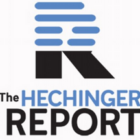Gov. John Bel Edwards sent chills down the spines of Louisiana students and parents when he announced a $28 million funding cut in this year’s Taylor Opportunity Program for Students (TOPS) due to the state’s inability to finance the merit-based state scholarship beyond previously set aside “statutory dedication” money.
Louisiana’s economy is moving into a downturn even as much of the country picks up. While news that colleges and universities would absorb the TOPS funding shortfall palliated Louisianans’ anxieties for the moment, the idea that thousands of people would pay unexpected tuition bills next fall made parents and collegians justifiably feel as if the state placed a basic right beyond its citizens’ reach.
In other words, Louisiana’s middle-class families just got a glimpse of what it feels like to be New Orleans public school parents.

Highlighting cuts to TOPS certainly raised consciousness of the importance of financial access to higher education. But if Edwards’ tactic of using TOPS doomsday scenarios to attract scrutiny to Louisiana’s budget crisis has a greater utility, it is to make the middle class sympathetic to those for whom higher education is perpetually out of reach.
Higher education isn’t a luxury.
High school graduation rates have risen over time, but the value of the degree has declined. In 2014, The Pew Research Center found that 22 percent of Americans with a high school diploma lived in poverty, compared with 7 percent of Baby Boomers who held a high school diploma in 1979, when they were in their late 20s and early 30s. According to the Bureau of Labor Statistics, the median weekly earnings of someone holding a bachelor’s degree in 2014 is $1,101 compared with $668 for those with just a high school diploma. The unemployment rate among those with a high-school degree is 6 percent; for four-year college grads, it’s 3.5 percent.
Subsidies for primary and secondary school are so ubiquitous that we don’t consider them as scholarships or grants.
The stakes are especially high for low-income, black and Latino families in New Orleans. Whites are twice as likely to have at least an associate degree than blacks in the metropolitan area. Standardized tests alone aren’t strong predictors of college success, but they are keys to the door. An ACT study determined that poverty, not motivation or attitudes, contributes to lower performance. Nevertheless, the highest TOPS scholarship requires an ACT score of 20, which exceeds the college readiness benchmark of 18, and requires a minimum of a 2.5 grade point average.
According to the State of Black New Orleans in 2014, seven out of 24 public high schools in New Orleans had an ACT composite score of 18 or better. In the Recovery School District the numbers are lower than its Orleans Parish School Board counterparts with only 2 schools out of 17 with a reported ACT composite score of 18 or better. RSD schools have higher percentages of black and low-income students.
The merit-based features of TOPS can make you forget the context in which people earn a scholarship. Low-income students are concentrated in low-performing, under-resourced schools. There is a debate to be had as to who earns and who deserves a scholarship. Students shouldn’t be burdened by underachieving schools.
Of all the people who need a full scholarship it’s disadvantaged youth in places like New Orleans and districts like the Recovery School District, but since its inception in 1988, TOPS has moved beyond the outstretched arms of too many public school students. Many have decried TOPS becoming a middle class entitlement. But it should be an entitlement – for everyone. The first two years of college should be considered the 13th and 14th grades, and they should be funded accordingly.
Subsidies for primary and secondary school are so ubiquitous that we don’t consider them as scholarships or grants. Constitutional limits on cutting elementary and secondary education are warranted because without a basic education a person can’t fully participate in a democracy or become self-reliant.
Taking away TOPS is like taking away funding for primary schools. Yet if legislators can’t find a budgetary fix, officials will have to dramatically raise the ACT requirement, which pushes the education everyone needs (especially poor folk) farther away. Changes to the scholarship program shouldn’t carve out “opportunity” from TOPS.
The debates across the state wrongly focus on whether TOPS should be rigidly applied to either high achievers or low-income achievers. And the debate denies why TOPS has ballooned. TOPS has grown because middle-class residents exercised their political clout to address a basic need: affordable college degrees. But everyone needs access to post-secondary options, and we the citizens of Louisiana should pay for that access.
The mere thought of curtailing access to college by limiting or eliminating TOPS gave middle class folk in Louisiana a hint of what low-income families experience in education, health care, housing and policing.
The demands to maintain the scholarship program are loud and fierce. I’m hoping the middle class will learn from their brush with injustice and collectively say that we can’t afford to limit college access to the poor any longer.
This story was produced by The Hechinger Report, a nonprofit, independent news website focused on inequality and innovation in education. Andre Perry, PhD, a Hechinger contributing writer, is the former founding dean of urban education at Davenport University in Grand Rapids, Mich. Previously, Perry worked as head of the Capital One-University of New Orleans Charter Network. His book, “The Garden Path: The Miseducation of a City,” was published in 2011. Tweet him @andreperryedu


